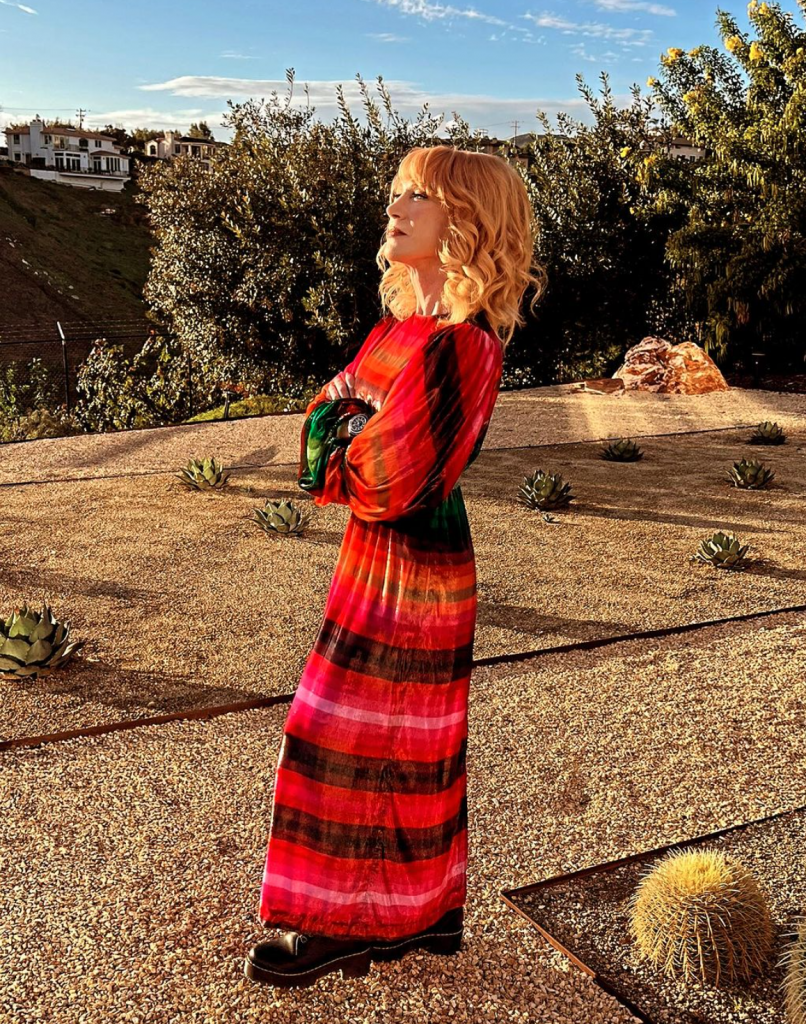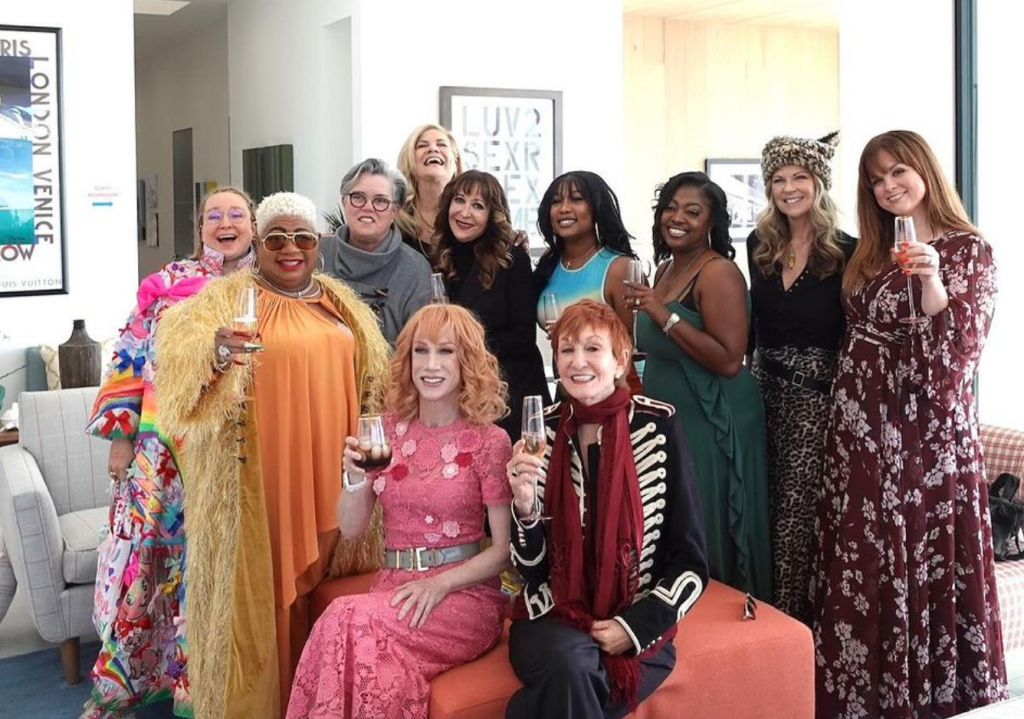Divorce After Cancer
- Lung cancer survivor Kathy Griffin may be facing a difficult life transition right now after filing for divorce just days before Christmas, but as her friends rally around, the award-winning comedian, 63, has made it clear that she’s going to be just fine.
- As with any relationship, especially during cancer, it is tough to assess what is always going on behind closed doors, as people are entitled to share private details only if and when they should choose to.
- It is important for cancer survivors to have a strong support system during and after cancer. Sometimes especially after cancer, when even more intense emotions can set in.
- Studies have found consistently that loneliness is a significant risk factor for physical and mental illnesses and the trajectory of recovery, Dr. Marianna Strongin shared with SurvivorNet. “Therefore, it will be important that you surround yourself with individuals who care and support you.”
“Walking into the future, knowing I am going to be OK. I’m doing this one day at a time,” Griffin shared Thursday on Instagram. “All my gurrls are surrounding me and taking care of me. ❤️🙏.”
Read More
“You survived every one of your worst days, Kathy. You got this! ❤️,” a third person stated, presumably referencing her public — and highly inspiring — lung cancer battle.
View this post on Instagram
“Well…sh*t. This sucks,” Griffin wrote on X (formerly Twitter), first addressing the news of her motion to end the four-year marriage to marketing executive Randy Bick, 45.
The former couple wed on New Year’s Day in 2020, with the ceremony officiated by actress Lily Tomlin. Griffin and Bick had been dating since 2011.
Helping Patients Understand Lung Cancer Risks
Kathy’s Lung Cancer Diagnosis
The Life on the D List star, a non-smoker, was diagnosed with lung cancer in 2021, and had half of her left lung removed soon after.
As Griffin recovered, she would consistently rave about Bick doting on her and cooking gourmet, healthy meals — overall being a great support system during tough times. As with any relationship, especially during cancer, it is tough to assess what is always going on behind closed doors, as people are entitled to share private details only if and when they should choose to.
Navigating Relationships During Cancer – A Survivor’s Guide
Nevertheless, the news came as a surprise to many fans. Griffin cited “irreconcilable differences” in court documents, listing the official separation as Dec. 22 and requesting the court to “enforce premarital agreement” from 12/23/2019.
Not only was Griffin’s lung cancer fight extremely challenging both emotionally and physically, with many surgical setbacks affecting her voice, but she also announced early this year that she has severe post-traumatic stress disorder, or PTSD, that surfaced in 2017.
This was the same year she faced backlash after posting a photo of herself with a fake, severed head of then-president and current Republican presidential candidate Donald Trump. Her lung cancer diagnosis four years later “did not help,” she said.
Divorce After Cancer
Sometimes people assume that if you’re married and you’re going through cancer, you at least have someone there to get through the tough times with. That’s not always the case, ovarian cancer survivor Amanda Crowell Itliong previously told SurvivorNet. Unfortunately, divorces during cancer do happen — but it’s not always a bad thing, the Detroit native said.
RELATED: ‘Girls Night Out’ For Shannen Doherty, 52, Is ‘Much Needed’ Amid Divorce & Advanced Breast Cancer
“Women do sometimes get divorces during this time,” she said. “It happened to me and I thought it was the worst thing that could ever happen — and it wasn’t. It wasn’t even a little bit the worst thing that could ever happen. It turned out pretty great in the end. Sometimes, things like cancer can show you that a relationship isn’t the right relationship.”

During the time of her interview, Amanda had been facing ovarian cancer for five years. Like many women who have the disease, she’s had to deal with several recurrences. She explained that after her first diagnosis, her husband at the time wasn’t really there for her — and could not really handle the stress in a helpful way. She wants other women to know that even if you experience relationship issues, or even the end of a relationship, because of cancer — it’s possible to move on.
“I was able to find happiness and good sex, passion and everything, with somebody else after all of that was over,” Amanda said. “Sometimes I think it has to do with believing it’s going to be OK, and figuring out how to work something out. If we get used to what works and what doesn’t with our bodies, we can get creative and come up with a lot of good solutions that mean you can still have a really positive sex life. It might just not look like it did before.”
The Importance of Support for Cancer Survivors
It is important for cancer survivors to have a strong support system during and after cancer. Sometimes especially after cancer, when even more intense emotions can surprisingly set in.
Dr. Shelly Tworoger, a researcher at Moffitt Cancer Center told SurvivorNet that “there’s a number of common things cancer patients can experience, such as anxiety, depression, financial toxicity, social isolation and sometimes even PTSD.”
Helping to ease some of those feelings is a great way to support your loved one.
Licensed clinical psychologist Dr. Marianna Strongin says having people by your side during this “arduous chapter” in your life can be very beneficial.
“Studies have found consistently that loneliness is a significant risk factor for physical and mental illnesses and the trajectory of recovery,” Strongin said. “Therefore, it will be important that you surround yourself with individuals who care and support you throughout.”
The importance of self-care and the things that bring you joy
Bianca Muniz is both an ovarian and breast cancer survivor. She told SurvivorNet some of her friendships ended because certain people just couldn’t understand what she was going through.
“I’ve lost a lot of friends because people don’t really know how to deal with what I’m going through,” Muniz said. ”I didn’t care to talk about what was happening with me. I just wanted things to be normal, and they didn’t really understand how to do that.”
But many people do see their friendships flourish during their cancer journey. For Monica Layton, it was the friendships and community of her church congregation that really gave her the support she needed during her ovarian cancer battle.
“[I’ve] gone to the same church for a long time, so it’s like another family that really supports me,” she told SurvivorNet in a previous interview. “We’re Episcopalian, and when I was having surgery my priest came to the hospital and stayed and prayed with my family the whole time, and it was a long surgery. And then he came back to the hospital every day to pray with me.”
In addition to consistent prayer, Layton’s church also sent flowers, cards and a prayer blanket and often visited her. “They were so kind — my faith has been very important, crucial for me. Just the prayer really helps, I think.”
Learn more about SurvivorNet's rigorous medical review process.

